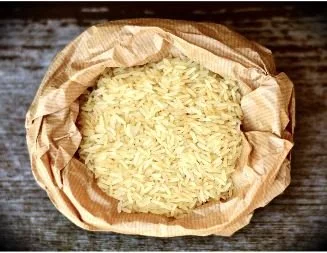Real World Nutrition News You Can Use
There is a lot of misinformation about nutrition. And nothing in this field is black-or-white, yes-or-no, but many shades of gray and a lot of “it depends.” So, my goal is to help clear up some of that misinformation with some snark, entertainment, and facts (with some opinion thrown in).
Many of these topics come from interactions with the public, friends, clients, and students. I see sheer misinformation about the science of nutrition, and I do my best to clear things up one blog post at a time.
If you have a topic you are wondering about, let me know.
Looking for a specific topic? Search to see if it is already here.
Peanut Butter Love
It is peanut butter lovers month – and I am one of those people who identify as a peanut butter lover. I am a fan of the creamy form – not crunchy. But we all have our preferences, and there is nothing wrong with our personal preferences. Parents and caregivers should use creamy for small children to reduce the risk of choking. This year, I am providing my list of 15 ways to have peanut butter in your diet. There are no rules here; use as much or as little as you want.
What are the benefits of orange foods?
What first comes to mind when I mention orange food? Fruits and vegetables? Candy? Cheese snacks? There are so many orange foods; fruits and vegetables are unsurprisingly the healthier categories. Right? But are there others that are good for us too?
Which Fat Is Best for Baking?
Solid fats like butter, shortening, and lard has their place and a role in baking. Because of the nature of these fats, their solid properties help with a nice layering or flaking of items such as pie crust and other pastries. But, again, this is something that oil will not replicate and cannot replicate.
Healthier Flour Alternatives
With the holiday baking season around the corner and so many people kicking wheat flour to the curb, I need to share the differences between these flours. There is nothing wrong with using wheat flour – either all-purpose white flour or whole wheat flour unless you have a wheat allergy or cannot eat gluten. Using a gluten-free or wheat-free alternative flour is fine and helpful. However, the belief that these other flours are healthier than wheat flour doesn’t hold up. In some cases, the calories and fat increase significantly. And the protein goes up marginally.
Is Chocolate Healthy?
So many people will tout the benefits of chocolate without fully realizing and knowing the facts. Sometimes, I wonder if they are saying it to feel better and justify their chocolate habit. Like when people tell me that wine is good for the heart without knowing the facts. (Hint: there is much more to the story, such as overall dietary patterns and lifestyle.) But is chocolate good for you? It can be, but its type and form make a difference.
Do You Need a Sugar Detox?
Is sugar a toxin? Can we be addicted to sugar? And should we detox from sugar?
What are Sugar Alcohols?
If you are unfamiliar with sugar alcohol, I must first clarify that this isn't the kind of sugar found in distilled spirits, beer, or wine. Therefore, people who avoid alcohol – the drug – do not need to avoid sugar alcohol since they are not alcoholic substances. They are a substance that provides a sweet taste, but they provide half the calories of sugar (and the other carbohydrates) and do not contribute to tooth decay.
Low Down on Low-Calorie Sweeteners - Tabletop Sweeteners
One of the more "feared" things in nutrition are low-calorie sweeteners. Low-calorie sweeteners are another name for non-nutritive sweeteners or what many people call "artificial" sweeteners. People swear they cause cancer. Contribute to weight gain. Have all kinds of adverse health effects. Years ago, there was a laundry list of aspartame's negative impacts–all untrue. What is the truth?
What Are the Types Of Added Sugars?
Added sugar sources have many aliases – and go by many names. Not all these are the white granulated table sugar that most people think of, but different forms of sugar. Some of these may be for flavor – adding sweetness to the food, but they also may have important properties in the preparation, baking, or mouthfeel of a food.
Healthier Sugar Alternatives
When people refer to sugar, they think of or refer to white granulated table sugar. And people will often assume or mistakenly think that if they use a sugar alternative – such as honey or agave nectar- they are making a healthier choice or something more “natural.” But are any of these healthier alternatives to white sugar?
Natural Vs. Added Sugars
People say that they don’t eat carrots because they are high in sugar. They don’t eat potatoes because they are “all” sugar. They don’t eat fruit because they are high in sugar. Avoiding these plant foods because of their sugar content is among the more ridiculous statements I have heard. Why? Because naturally occurring sugar just isn’t the same as added sugars in food.
Rice, Rice Baby
For years now, people tell me that they don’t eat carbs – bread, pasta, rice, and potatoes. – I must wonder why specifically these four foods considering that rice isn’t a nutritional zero or significant contributor of excess calories in the typical American diet either.
Chocolate Milk and Post Exercise Recovery
Over the years, I have gotten many questions about what a good post-exercise recovery meal or drink is. While there are many protein drinks and recovery options, I come to the table with a budget-friendly option: chocolate milk. Many years ago, when my husband asked about a post-exercise recovery option, I suggested chocolate milk, and he said, “no I mean something with protein in it that can help with my recovery.” So, I said, “chocolate milk!”













